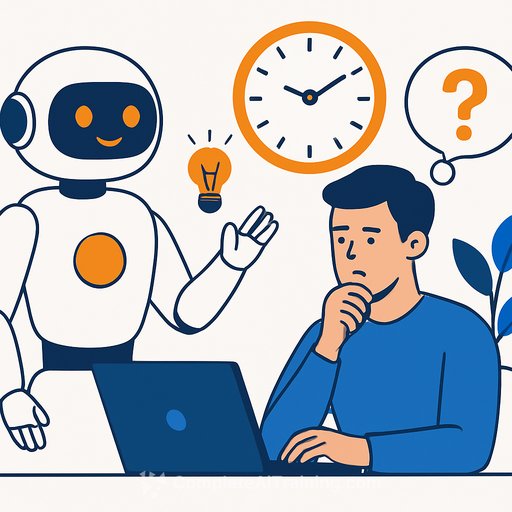AI will save us time. The real question is what we'll do with it
"How did it get so late so soon?" That single line sums up how most of us feel. We've built smarter tools, yet our days feel tighter, faster, and more crowded than ever.
A century ago, John Maynard Keynes predicted technology would ease work and expand leisure. That didn't happen. The average person still feels squeezed, and the real gap isn't tools - it's how we use the minutes we get back.
Time famine is real - and costly
We're surrounded by productivity advice, but optimization can become its own trap. The fully optimized life often drains joy and attention. The goal isn't to fill every minute - it's to focus the right minutes on what matters.
Social platforms were built to capture attention. As Sean Parker said years ago, the model was to consume as much of your time and attention as possible. That leads to the 30-minute ick factor: the sudden regret when you realize you've been scrolling and can't even say why.
Task-switching makes this worse. Constant context shifts impair cognition and stretch stress across the day. The research on multitasking is clear: it slows you down and makes you feel busier than you are. Here's a quick overview from the APA.
Chronos vs. Kairos: choose your time
The Greeks had two words for time. Chronos is clock time - meetings, deadlines, commutes. Kairos is the meaningful moment - the conversation you remember years later, the dinner where someone finally said the thing that mattered.
At the end, we don't tally emails. We remember how we showed up for people. Interviews with the very old keep saying the same thing: the regrets are rarely about output; they're about relationships, presence, and the words left unsaid.
AI can give time back - if we plan for it
Early data shows AI is already returning 3-5 hours a week to many knowledge workers. Yet most people admit they waste a chunk of that windfall. As Ryan Alshak notes, we budget money with care, but we treat time casually - even though it's the scarcer resource.
The fix isn't more hacks. It's deciding in advance what the saved hours are for. Without intention, reclaimed time gets reabsorbed by low-value work and low-quality scrolling.
A simple playbook for your freed-up hours
- Decide your "non-negotiables." Lock in sleep, movement, and relationships first. Protect these like meetings with your future self.
- Build single-task blocks. Two 50-minute focus blocks a day beat eight hours of fragmented effort. Phone out of reach. Notifications off.
- Reduce inputs. Batch email twice daily. Cap meetings. Default to async updates. Short agendas. Shorter calls.
- Turn repeat work into templates. Use AI for drafts, summaries, outlines, and first passes. Keep a personal prompt library so you don't reinvent the wheel.
- Install "scrolling receipts." Set a 15-20 minute timer before opening social apps. When it rings, ask: do I feel better or worse? Adjust.
- Schedule Kairos. Daily device-free meals, walks, or calls. Weekly long-form conversation. Monthly plan-ahead day with someone who matters.
- Run a weekly reset. Review where the time went. Keep what worked. Cut one low-value commitment. Add one high-meaning block.
- Create team norms. Shared definitions of "urgent," no-meeting focus windows, and standard AI workflows to trim prep and follow-up.
Prevent the 30-minute ick from becoming the 30-year ick
Time saved is meaningless if it's filled with noise. Guardrails beat willpower: timers, app limits, and one-tab browsing. Put friction where you waste time and remove friction where you create value.
Presence stretches time. When you're fully in a task, a conversation, or a moment, minutes feel bigger. That's time affluence - not more hours, but richer ones.
Make the tradeoffs visible
Every yes is a no to something else. Say yes to a random meeting, say no to an unhurried dinner. Say yes to late-night scrolling, say no to real rest. Write your top three priorities where you can see them. Decide what your saved hours will fund before the week starts.
If you want practical AI help
Start small: pick one workflow you do daily - emails, meeting notes, briefs, reports - and automate the first draft. If you need ideas, browse practical office-ready tools here: AI tools for office work. Keep what saves you time, drop what doesn't.
The quiet point
If we're lucky, we get about 30,000 days. AI can free a few hours inside each one. The value shows up only if those hours move from Chronos to Kairos - from more doing to better living.
Use the tech. Keep your time. Choose your moments on purpose.
Your membership also unlocks:


